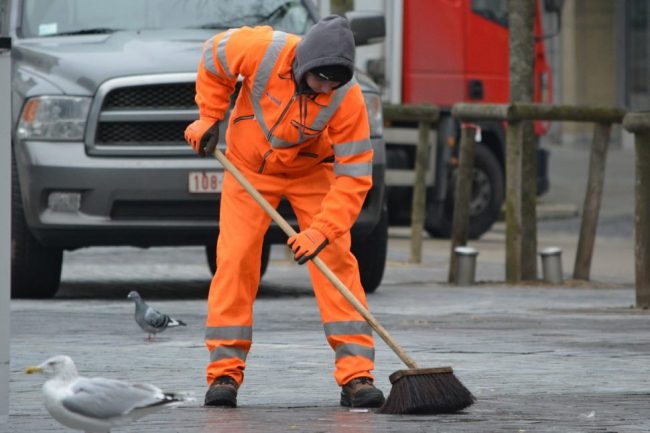People in Flanders who have been without a job for more than two years will be called on to do mandatory community service starting from 2023.
It is hoped this initiative will ensure jobless people don't become socially isolated and is expected to offer them more active support in finding a job, according to Flemish Minister of Employment Hilde Crevits, who announced the decision on Thursday.
"There are almost 70,000 job-seekers in Flanders who have been without a job for more than two years. The coronavirus crisis has hit this group even harder and made it more difficult for them to find work. There was little movement in the labour market," she said.
Crevits explained that these people in particular have a great distance to the labour market. "The longer it takes for them to find a job, the more difficult the situation becomes." Those who are off work because of an illness or injury are exempt.
Remaining active
There are a large number of vacancies open in the region, and she stressed that it is important that these long-term unemployed people can remain active so that they can maintain and strengthen their skills to fill these open vacancies.
"With the community service, we want to make sure of that. The long-term job-seeker carries out tasks for the benefit of his or her local community with the focus on strengthening his or her (labour market-oriented) competencies."
Related News
- A jump in Belgian employment predicted as employers create new jobs
- Students face €17 trillion loss in lifetime earnings due to pandemic
These tasks will include support at events, but also at vaccination centres, offering gardening services or helping with school bus guidance. "In this way, we activate a group of people who find it difficult to find a job, we ensure their involvement in society and we broaden their view towards work."
If the job seeker refuses community service without a valid reason, sanctions will reportedly be imposed on them.
Practicalities and opposition
Long-term unemployed people who are called on for community service will be able to retain their social benefits as well as receive payment of €1.30 an hour. They will only be deployed in this way for a limited time, to avoid them staying in this system forever.
The Flemish agency that helps job seekers, VDAB, will work with local municipalities, which will be in charge of finding small-scale tasks, matching them with the jobseeker, and following up the activities, to determine where these long-term unemployed people can be deployed for a maximum of 62 hours per month.

The long-term unemployed may be called on to assist in vaccination centres. Credit: Belga/Hatim Kaghat
This plan, which was already included in the Flemish coalition agreement after causing controversy in parliament for almost a decade, will now also be discussed with social partners. However, various trade unions have already responded with suspicion to this proposal, especially regarding the fact that it will be made compulsory.
"There are many vulnerable people in this group of long-term unemployed who need a lot of tailored support. This obligation will not allow you to offer them that support," Caroline Copers, General Secretary of Flemish trade union ABVV, told VRT News.
Instead, she believes that employers are in a better position to help the long-term unemployed find a job.
Record-low unemployment
This year, the number of job-seekers in Flanders dropped to the lowest point it has been since records began. In November 2021, 180,823 people were jobless, a decrease of 16% compared to the same month in 2020.
"At a time when there are now more than 72,000 vacancies, this offers job-seekers opportunities to (re)gain a foothold in the labour market," Crevits said.

